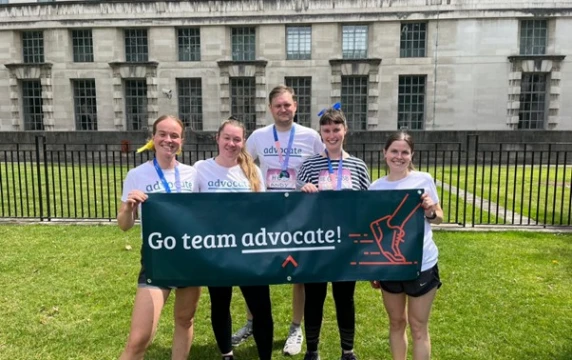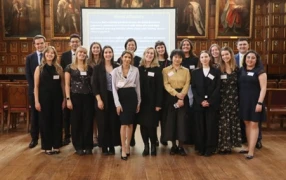As the beginning of the new legal term approaches, barrister Emma-Louise Fenelon from 1 Crown Office Row reflects on her varied and exciting experiences of undertaking pro bono work, encouraging other barristers to take the leap and volunteer.

If the end of the August break and the prospect of the new term have you thinking about shiny new stationary and even shinier intentions, why not commit to taking on a case for Advocate?
I understand the reservations. Diaries get in the way, bills need to be paid, and putting your hand in the air to take on responsibility for a case (sometimes outside your comfort zone) can be intimidating. In addition, we are all aware that pro bono representation is no replacement for a properly funded legal aid system, and that it should not be expected to plug the gaps in the legal aid desert facing many people in different parts of the UK. Many of us have witnessed the challenges faced by those for whom the legal system is prohibitively expensive, and the inevitable injustices resulting from an uneven playing field.
But if you are in a position to roll up your sleeves, the rewards of acting pro bono are immense. I say this from my own experience: in recent years I have represented a junior doctor who became a whistle blower mid-way through an inquest, resulting in his employer withdrawing his legal representation; acted for the Yorkshire Wildlife Trust protecting Askham Bog from development that would have destroyed what David Attenborough called "a cathedral of nature conservation"; I have represented victims of domestic violence, child abuse and clinical negligence; and assisted Save the Children in their intervention before the European Court of Human Rights in Duarte Agostinho v Portugal and 32 Others, a potentially ground- breaking climate change case.
The benefits of volunteering to take on a pro bono case are numerous
More recently, thanks to a referral from Advocate, I was part of a team (along with Neil Hart KC, David Hart KC, Tom Beamont and Akash Sonecha) acting for several victims of the Beirut Port explosion, instructed by Dechert LLP. You may remember the images in the news from August 2020, depicting the plumes of smoke over the port, the loss of human life and the physical devastation caused by what is thought to be the biggest non-nuclear explosion in history. We brought claims for personal injury against the UK-owned company responsible for the chemicals that caused the blast and were delighted when on the 12th June this year, the High Court awarded our clients over £850,000 in damages.
All of which is to say: the benefits of volunteering to take on a pro bono case are numerous. You might be exposed to new solicitors, new organisations, or new barristers that you would not otherwise have come across, and grow your network. You may end up being led by and learning from leaders in their fields.
You are often required to stretch yourself professionally, whether that involves getting to grips with the quirks of a new legal forum (as I had to when appearing at a Planning Inquiry for the first time in the Askham Bog case), becoming familiar with a new aspect of the law (as was required when introducing expert evidence on Lebanese law, in our damages hearing in the Beirut case) or getting up to speed with a case in a matter of hours (as happened when I was parachuted into the inquest to represent the whistle-blower junior doctor).
The leap is worth it
Admittedly, like any other instruction, acting pro bono is hard work. The learning curve is occasionally not insignificant (a lawyerly way of say it can be downright petrifying), and fitting it around other professional demands takes discipline. But I have no doubt these experiences have made me a better barrister, and, without lurching too enthusiastically towards a Hollywood-inspired cliché , there really is nothing like the feeling of a positive outcome for your client in a pro bono case. For those curious about getting involved, I'd say: the leap is worth it.
Could you act on a pro bono basis?
There are a number of ways in which you can volunteer with Advocate to help people who are in desperate need of legal assistance. Find out more.






